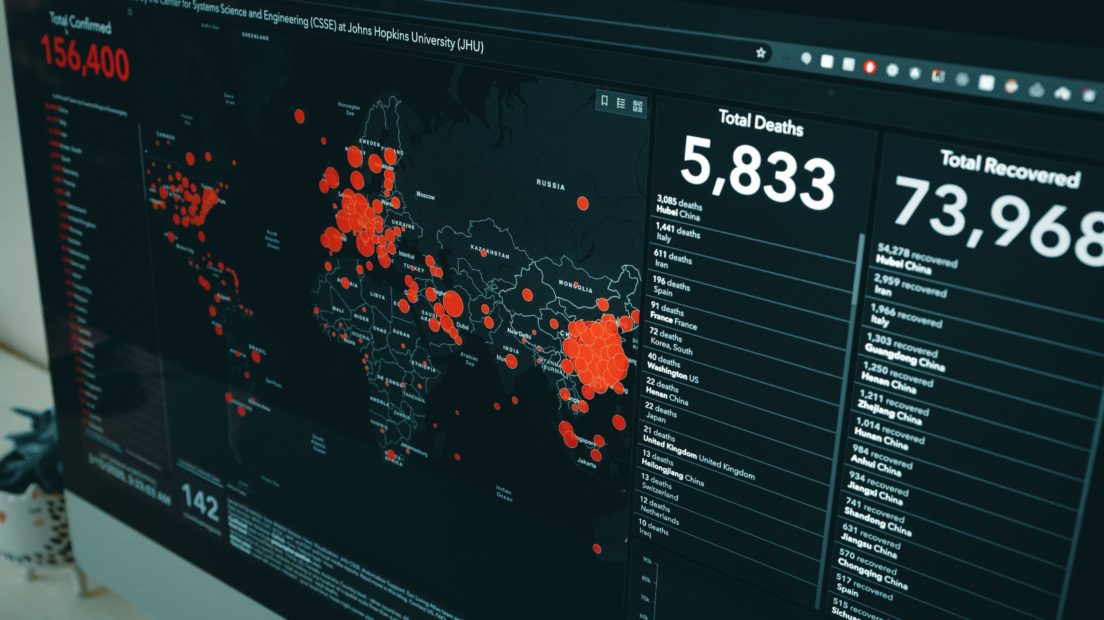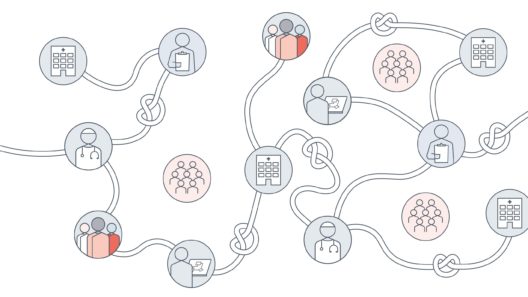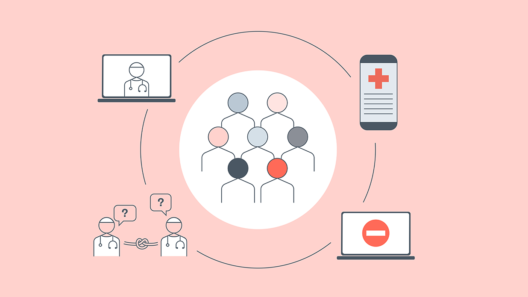Tackling health and social inequalities in data-driven systems
Research to examine the interaction between data-driven systems and health and social inequalities, in the wake of COVID-19.

Project background
The COVID-19 pandemic, and the wider governmental and societal response, have brought health inequalities into sharp focus.
Data-driven technologies and the systems within which they operate have increasingly become a central part of the health infrastructure – a trend accelerated by the pandemic. Tools, such as symptom tracking and digital contact tracing apps, are being mobilised at pace and their use during the pandemic may well become the norm for the future.
However, little is known about the long-term impact of data-driven approaches. There is a risk that they are exacerbating health inequalities, but also there is great potential for them to shed light on, and address inequalities when designed well.
Project publications
Report: A knotted pipeline: Data-driven systems and inequalities in health and social care (Nov 2022)
This report contends that the ‘smooth’ data pipeline is a hypothetical ideal that does not reflect the complexity and imperfection of reality. If data is to continue to be useful for healthcare decision-making, now is the time to recognise that data-driven technologies in health rely on a complex ‘knotted pipeline’ of information.
Report: Access denied? Socioeconomic inequalities in digital health services (Sep 2023)
In partnership with the Health Foundation, we explored how the accelerated adoption of data-driven systems and digital health services interact with health inequalities in the UK.
Policy briefing: Access denied? Inequalities in data-driven health systems and digital health services (Sep 2023)
This briefing draws on evidence gathered from our partnership with the Health Foundation, exploring inequalities in digital health services and data-driven health systems in the UK. It sets out five challenges with accompanying recommendations for reducing inequalities and taking a more inclusive approach to digital healthcare.
Project overview
In partnership with the Health Foundation, we have explored how the accelerated adoption of data-driven technologies and systems during the pandemic may have affected inequalities. Our report, A knotted pipeline, describes the interaction between these technologies and health outcomes and outlines some of the ways that health inequalities can arise from data-driven technologies in the UK’s health ecosystem.
Evidence was gathered through a desk-based scoping exercise of publicly available documents, with additional information shared by technology organisations. It was supplemented by stakeholder interviews.
Together with the Health Foundation, we are continuing to gather evidence of the ways data-driven systems impact inequalities. Our goal is to produce recommendations for how these systems can be designed and deployed in ways that mitigate negative impacts and promote their benefits.
The advisory group
Throughout the research, an advisory group of specialists in philosophy, global and public health, patient and public advocacy, as well as ethics and industry have provided guidance.
Project publications

A knotted pipeline
Data-driven systems and inequalities in health and social care

Access denied?
Socioeconomic inequalities in digital health services

Access denied?
Inequalities in data-driven health systems and digital health services
Related content

The data divide
Public attitudes to tackling social and health inequalities in the COVID-19 pandemic and beyond

Don’t start with the data: a people-centred approach to addressing health inequalities
Why identities and experiences can’t be reduced to categories